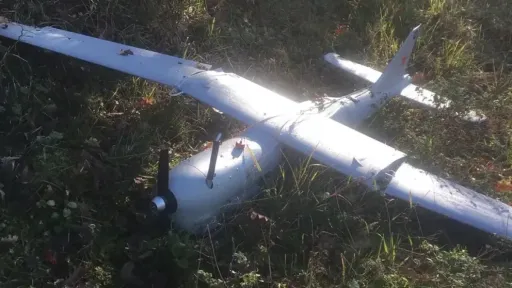Yemen's Houthi rebels have used cruise and ballistic missiles, in addition to drones, in an attack on Abu Dhabi this week that killed three people and set off fires at a fuel depot and an international airport.
The remarks by Yousef al Otaiba, the Emirati ambassador to the United States, marked an official acknowledgement that missiles — and not just drones — were used in Monday's attack, claimed by the Houthis.
“Several attacks — a combination of cruise missiles, ballistic missiles, and drones — targeted civilian sites” in the United Arab Emirates, Otaiba said on Wednesday.
“Several were intercepted, a few of them didn’t and three innocent civilians unfortunately lost their lives," he added in remarks at a virtual event hosted by the Jewish Institute for National Security of America.
The event was held to discuss US policies and Israeli relations with the UAE and Bahrain.
Otaiba said the UAE was pressing Washington to designate once again the Houthis as a terrorist organisation.
Otaiba did not respond to further questions from The Associated Press about how many missiles targeted the UAE and how many were intercepted.
The missiles and drones with bombs attached — if they were fired from the Houthis' stronghold in northern Yemen — would have needed to travel some 1,800 km (1,100 miles) to reach targets in Abu Dhabi.
READ MORE:Deadly 'drone strike' hits UAE as Houthis announce military operations
Five ballistic missiles?
Monday's attack targeted an Abu Dhabi National Oil Co. fuel depot in an industrial zone outside the city centre of the Emirati capital, as well as an area of Abu Dhabi International Airport still under construction. The attack killed two Indian nationals and one Pakistani.
The Houthis said they fired five ballistic missiles and a number of explosive-laden drones. They said they targeted the airports of Abu Dhabi and Dubai, the world's busiest for international transits, as well as an oil refinery and other sensitive Emirati facilities. There was no indication Dubai was hit in Monday's attack.
The UAE was a key member of the Saudi-led coalition that entered Yemen's civil war in 2015, after the Houthis had overrun the capital of Sanaa the previous year and ousted the country's president from power.
Although the UAE has largely withdrawn its forces from the conflict, it remains heavily involved in the war and supports local militias on the ground in Yemen.
The Houthis have used drones and missiles to attack Saudi Arabia and oil targets in the Persian Gulf over the course of Yemen's war, now in its eighth year. Monday’s attack was the UAE’s first acknowledgement of being hit by the Houthis.
There have been several civilian deaths in Saudi Arabia from cross-border Houthi attacks.
The Saudi-led coalition intensified air strikes on the Iran-backed Houthis across Yemen late on Monday, including in Sanaa. At least 14 people, including a senior Houthi military official, were killed in one air strike in Sanaa, the group said.
The office of UN High Commissioner for Human Rights said that there were five civilians among the dead.
READ MORE:UAE vows reprisals as Houthis claim deadly attack in Abu Dhabi
























